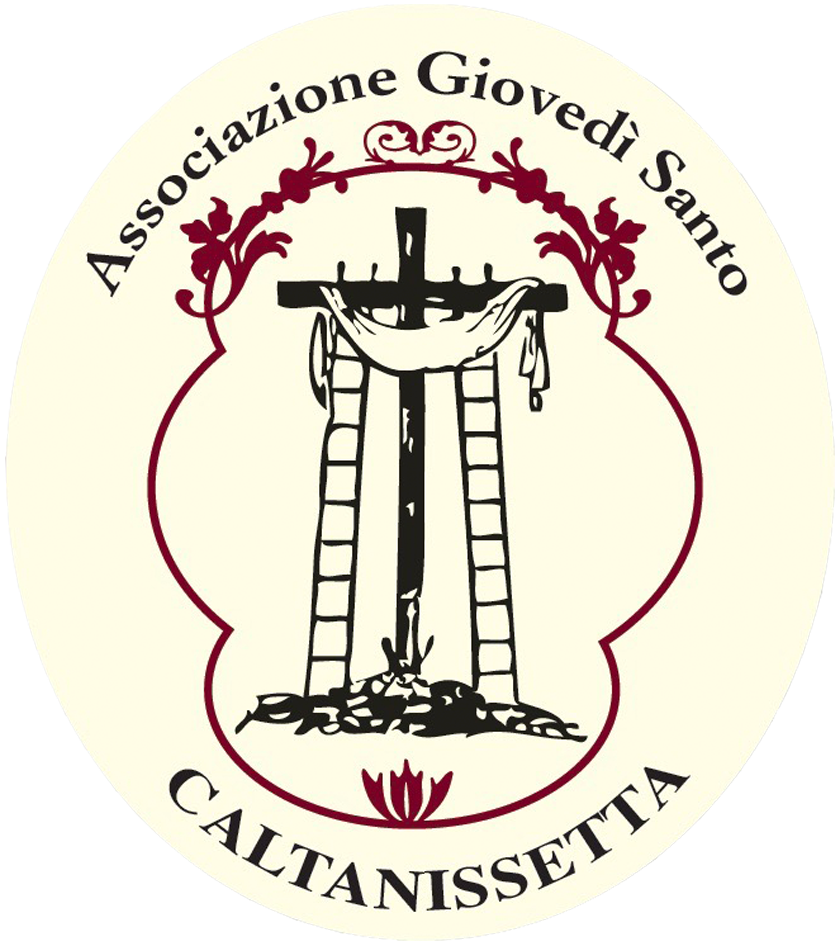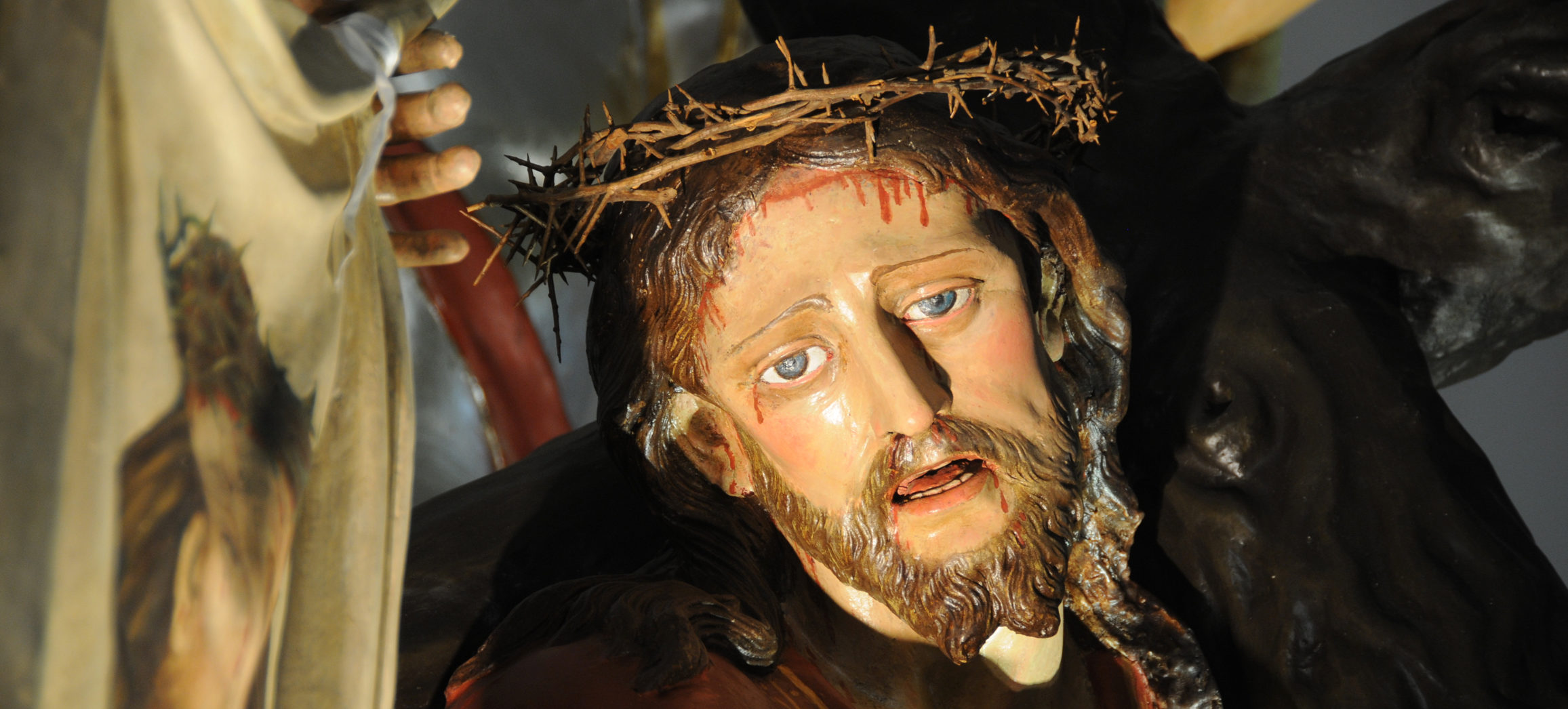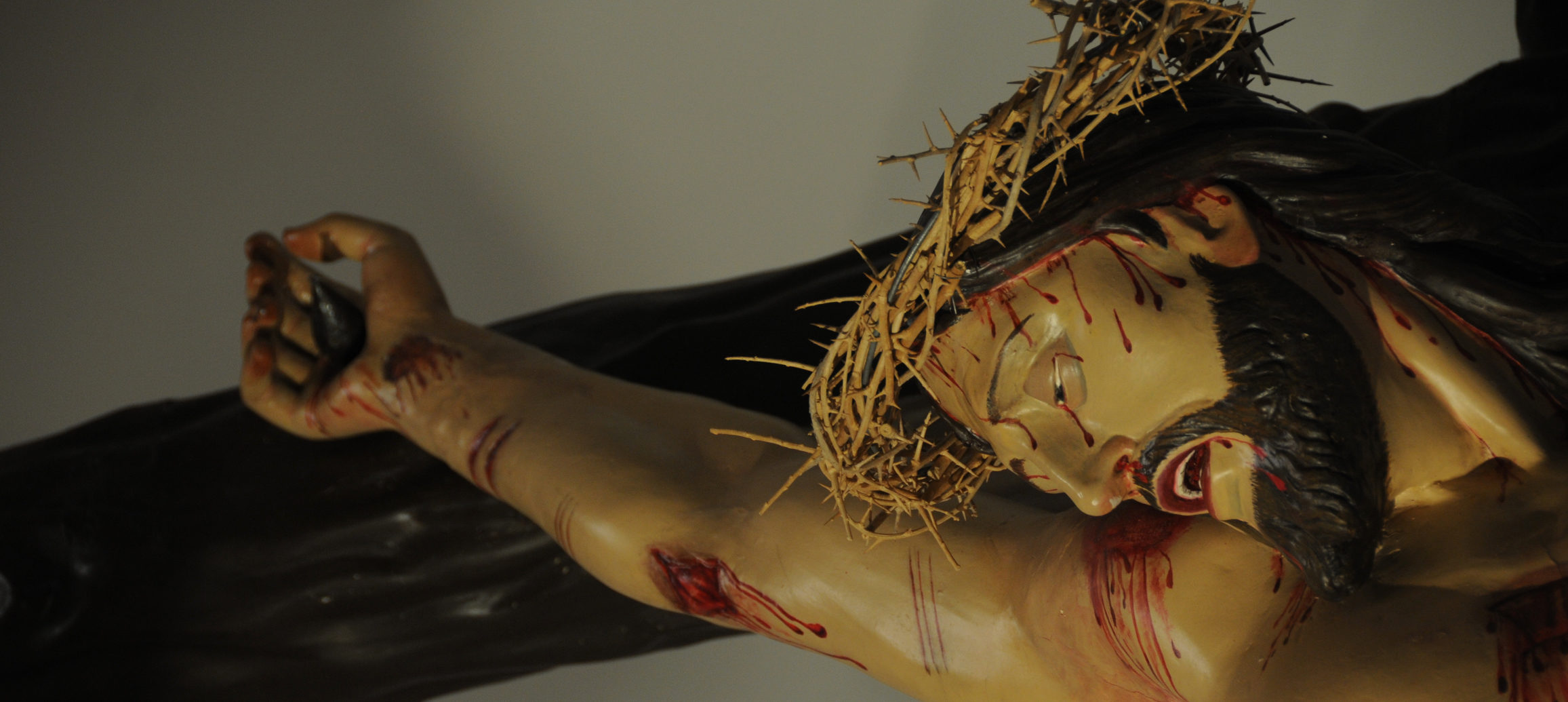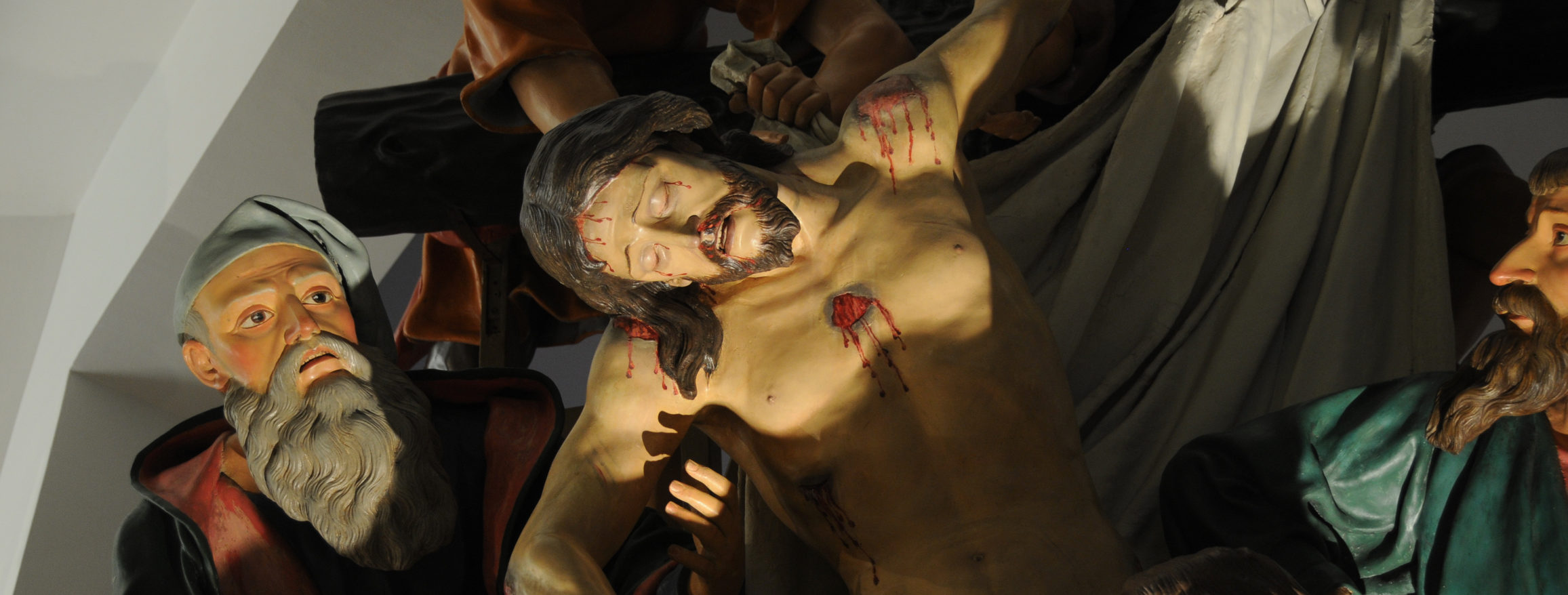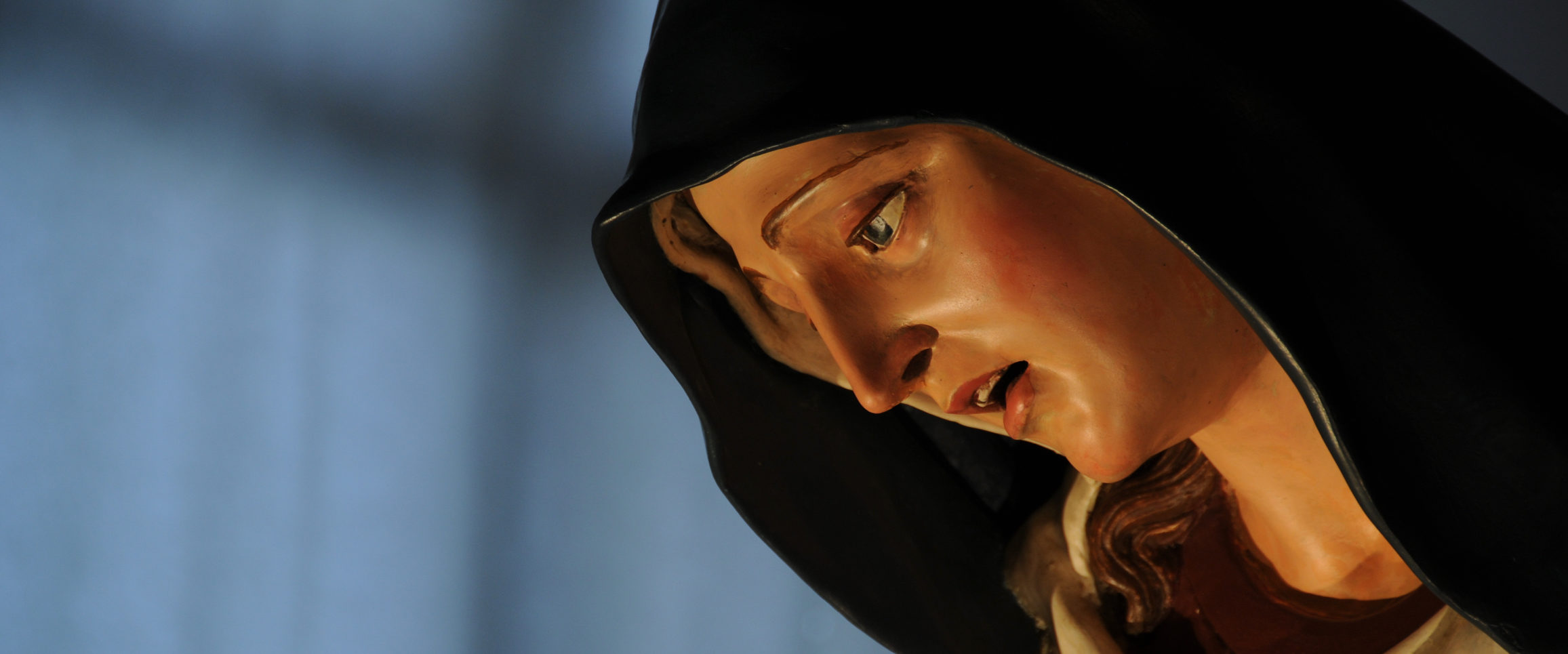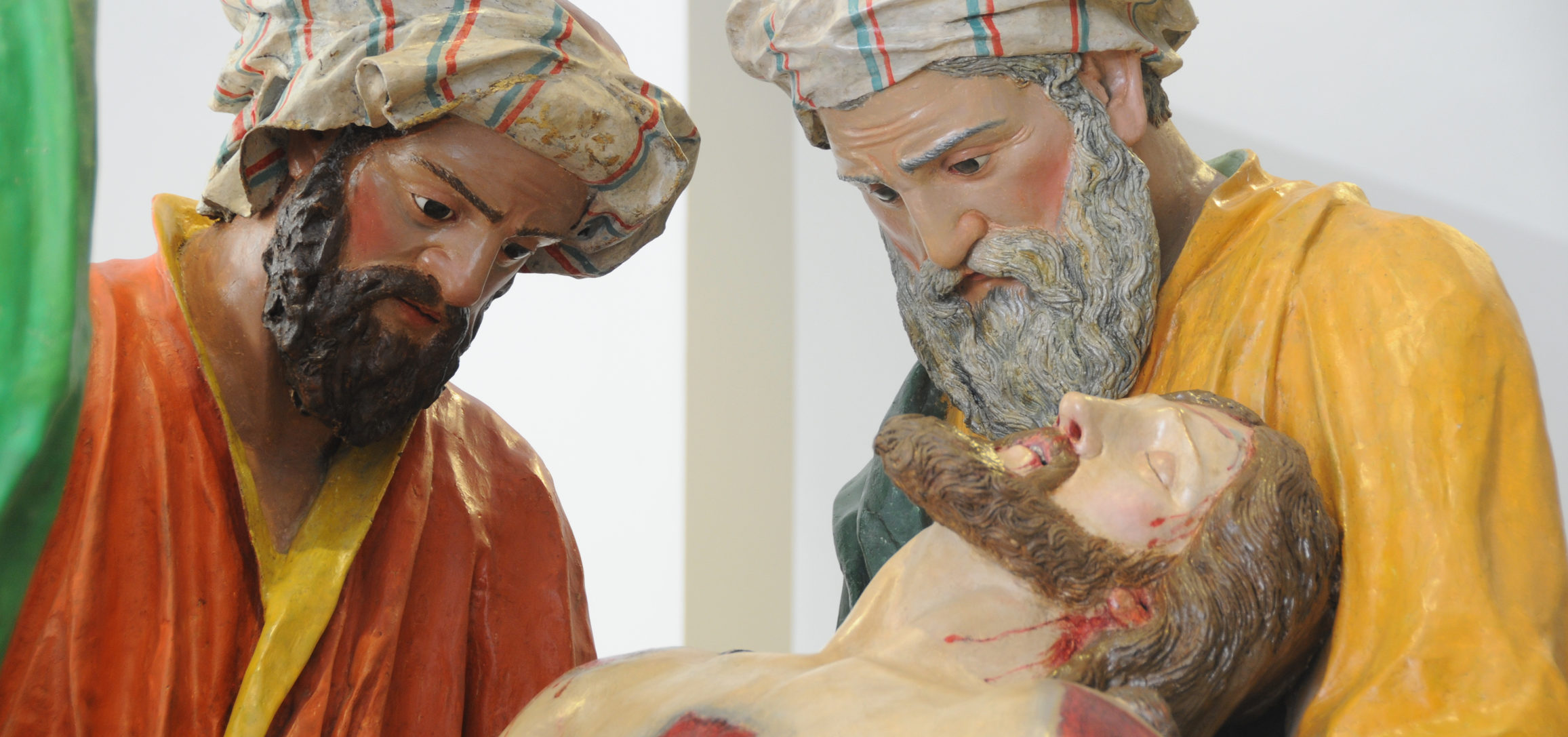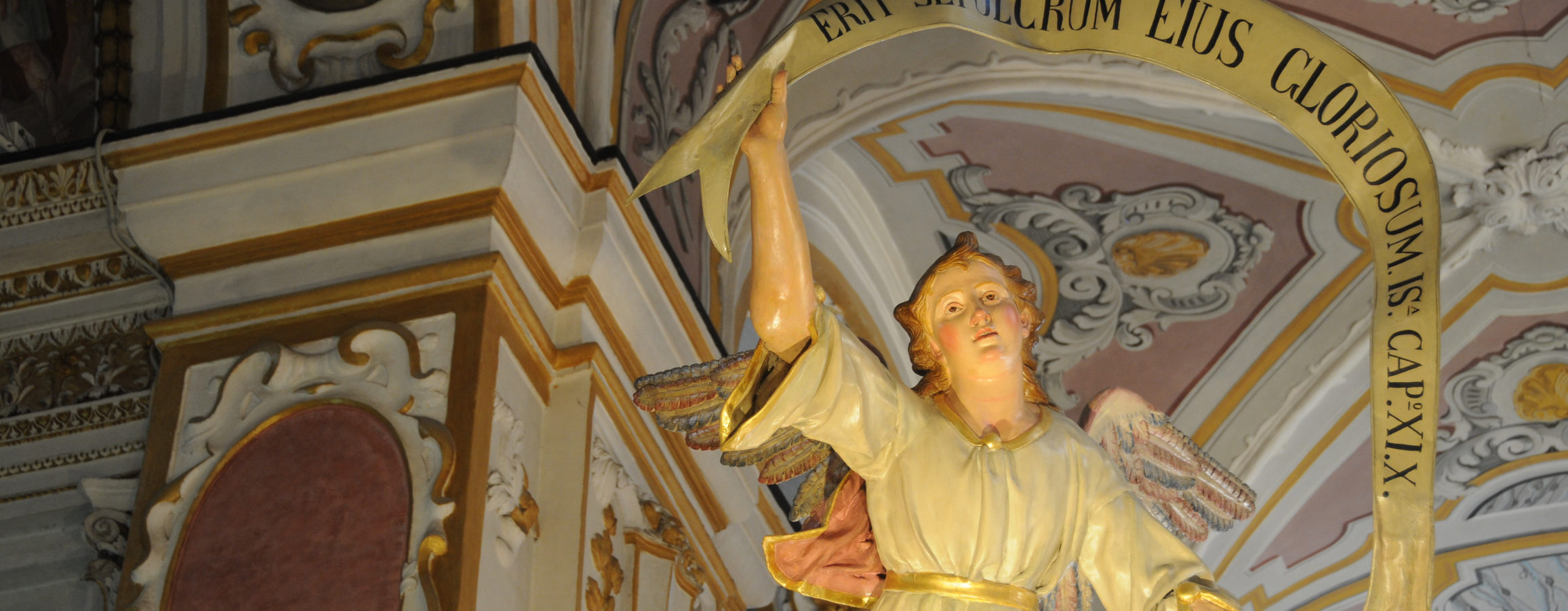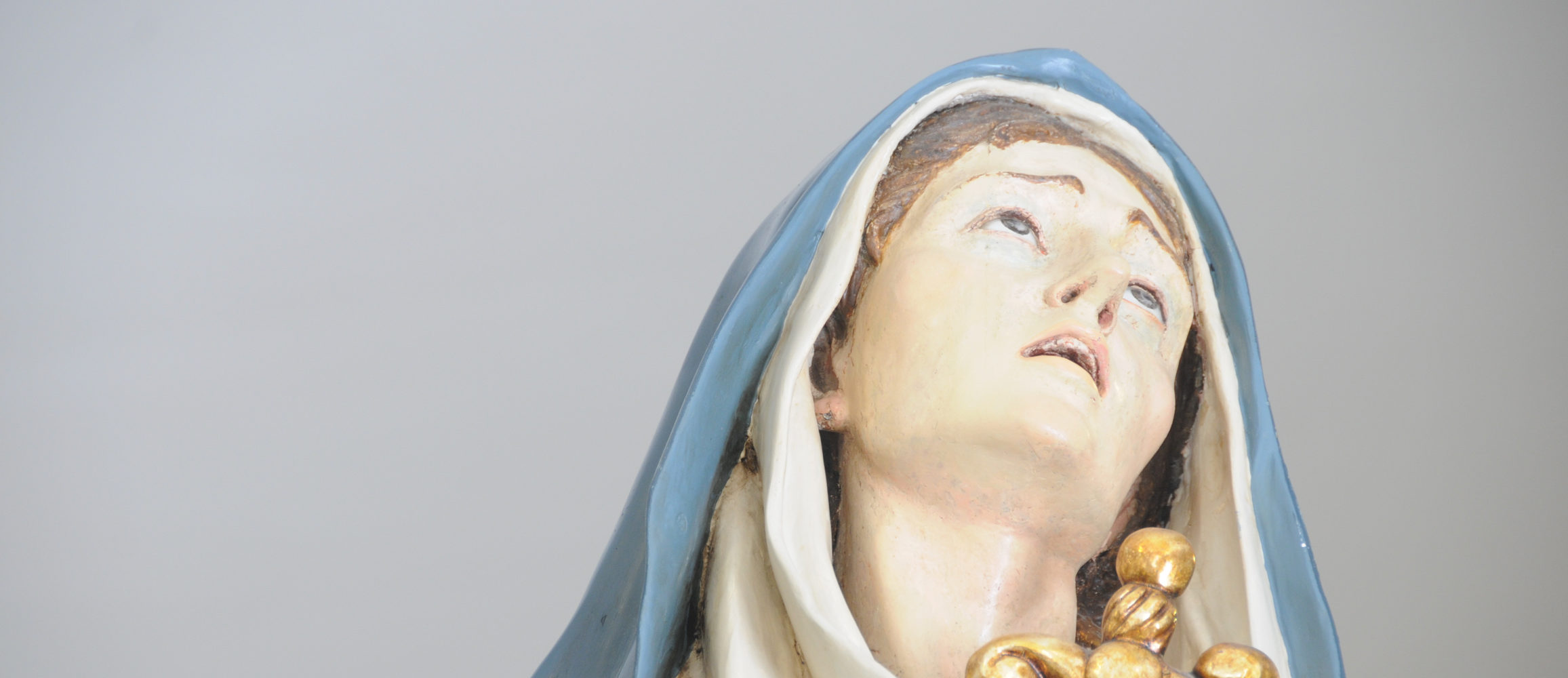Veronica
Realized by – Francesco and Vincenzo Biangardi in 1883
Ordered by – Juncio Gessolungo miners
It belongs to the Sacra lega San Michele Arcangelo association
Labor cost – Lire 900
It is the first group created by Biangardi following the disaster in the Gessolungo mine on November 12, 1881.
The scene depicts the moving encounter of Jesus with the pitiful Veronica, who, with compassion, dries with a veil the holy blood-drenched face that remained on the soft tissue.
